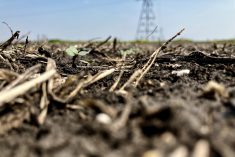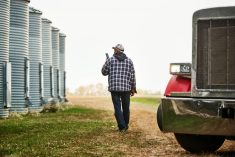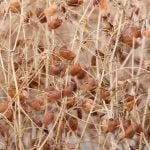Farmers seeking mental health support will have access to free training and community workshops for the fourth year in a row via the Do More Agriculture Foundation (DMAF) and Farm Credit Canada (FCC).
Factors such as financial insecurity, uncontrollable weather and isolating working conditions contribute to high depression, anxiety and suicide rates among farmers, according to the Mental Health Commission of Canada.
Devin Wozniak, a farmer and life coach from Glenavon, Sask., said he thinks there is a lack of emotional support for farmers.
Read Also

Ample supplies and improved livestock sector to boost Canadian feed sector: FCC
Abundant feed grain supplies and improved profitability for the livestock sector should support strong feed demand and sales through the winter, says a new report from Farm Credit Canada.
“When I used to run a business, I used to get validation or gratification from my customers,” he said. “And then as I shifted into full-time farmer, I felt needy. I was constantly needing from my family, from ag stores. You need them to be open.”
After struggling with anxiety and depression for many years, Wozniak knew spending hours upon hours alone in a combine was not helping his case. He needed to find a support system outside of his family and his employees.
“There’s never really a ‘thank you.’ There’s actually resentment. Like the weather, we can’t control the weather. As the leader of the farm, we’re considered the boss so we’re needing people to work long hours, and they look at us as being the slave driver. Our boss is Mother Nature, but we feel the brunt of it.”
Wozniak found education and belonging through an online program called The Bulletproof Husband, which provides support to men struggling with their personal relationships.
Along with finding a community within that program, Wozniak said he was mentored by a psychiatrist for many years and explored other online programs involving mental wellness.
Wozniak said he would be interested in the DMAF program and he thinks rural communities could benefit from this type of offering.
“Especially in a small community, when you are going through a tough time a lot of people avoid it, they don’t know how to relate to it,” said Wozniak.
Literacy
DMAF is expanding its programming from last year to include multiple options for webinars and in-person workshops.
New to the DMAF menu this year is AgCulture, a program for mental health professionals looking to gain agricultural literacy to better care for rural patients.
“This year DMAF’s focus is on supporting the industry as a whole,” DMAF executive director Megz Reynolds said. “This means bringing mental health literacy and educational workshops to farming communities, hosting national webinars to bring Canadians in agriculture together, and bringing AgCulture to mental health clinicians across Canada to ensure an understanding and connection to agriculture.”
The three workshops available for communities are Talk, Ask, Listen; Mental Health First Aid; and In the Know.
“Talk, Ask, Listen” is a half-day workshop intended for farmers who want to increase their understanding of mental health and begin to unpack the stigma surrounding mental health issues.
For more intensive training, “Mental Health First Aid” is facilitated by the Mental Health Commission of Canada and provides a framework for people to better manage their own, or a loved one’s, mental health problems.
The DMAF website describes “In the Know” as an evidence-based workshop which “aims to build mental health knowledge and increase help-seeking among farmers.”
Individuals looking to bring any of the no-cost workshops to their communities can apply to DMAF’s Community Fund by filling out an online form. Applications are open until Dec. 10.
— Hannah Polk reports for Glacier FarmMedia from Regina.












